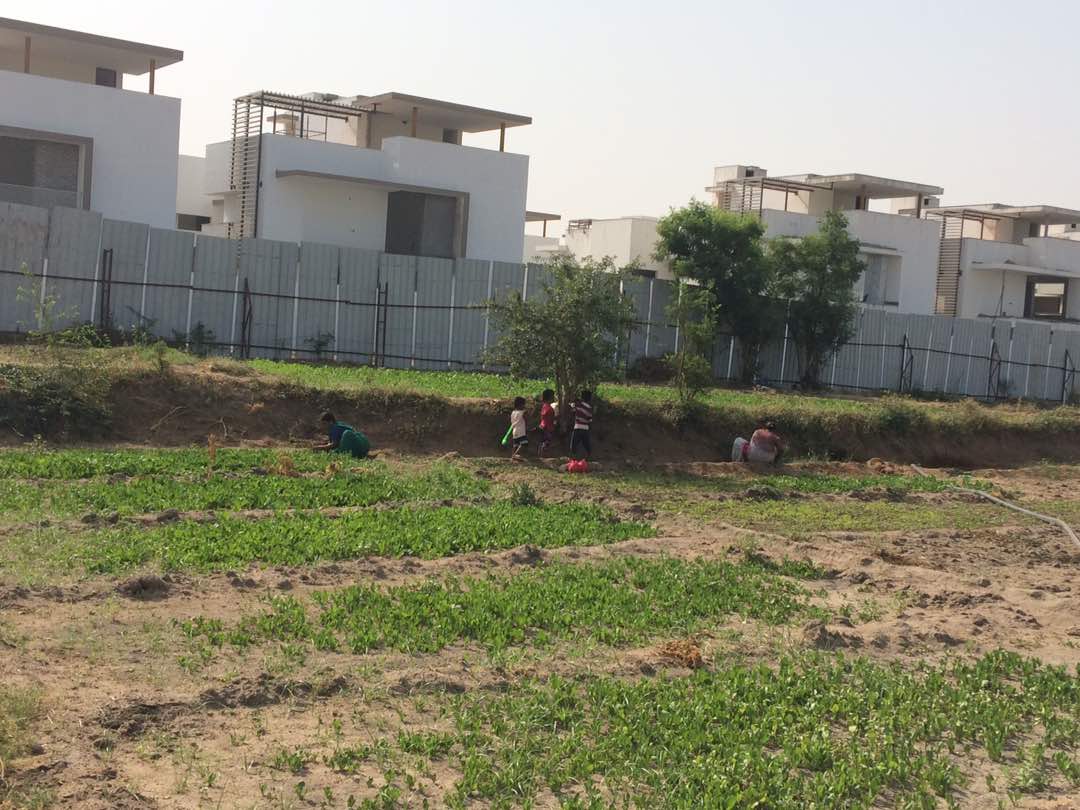
Competing uses of water: The phasing out of agriculture in peri-urban Mallampet
A dominant characteristic of a peri-urban site is its transition out of an agrarian economy as a result of industrialization and urbanisation. This usually manifests itself in the form of agricultural land either left barren or sold for developmental activities and farmers and agricultural labourers looking for an alternative source of livelihood. One of our study villages, Mallampet presents a case in point.
The shift from agriculture is seen as a result of push-factors or pull-factors. In Mallampet, the shift has occurred through a combination of both kinds of factors. In the early 2000s, the Outer Ring Road (ORR) came up very close to Mallampet, with which came a flood of industrialization and commercialization in and around the village. At that point, a lot of farmers were enticed into selling their land for a lump sum amount of money. Farmers would take decades to make that amount of money through agriculture, hence this served as the strongest pull factor that attracted them out of agriculture.
An interview with a woman from an agriculture-practicing family revealed many causes for the decline in agriculture as a domino effect of industrialization and urbanization. She said that the agriculture of the entire village was dependent on the lake for irrigation. This is Kathua Cheruvu and is shared with Bowrampet, a neighboring village. Soon after the ORR came up, Dr. Reddy’s Laboratories set up a pharmaceutical unit in Mallampet. She says that in its initial days, this unit used to dispose its chemical waste into the lake. As a result all the fish of the lake were poisoned. That year, nobody was able to produce any crop, although the land was cultivated but the water completely burnt the saplings. After this incident, many more people started to sell their land to real estate ventures.
The same woman also talked about the various ways in which people were using their agricultural land. She said that a lot of farmers have given their land on lease, due to either the lack of finances to dig bore wells for irrigation or the lack of agricultural labour in the village. The individuals who take this land on lease, dig bore wells and start extracting water to sell through tankers. This water is sold even outside the village to apartments and companies. There are a few plots of land from where people sell water, and these are adjacent to her agricultural land. Her perception is that ever since these people have begun selling water, the water in their bore wells have also reduced,. In addition to this, the Panchayat had stopped releasing lake water for cultivation, as there are only few parcels of land being cultivated currently in comparison to large chunks of vacant land sold to the ventures. She mentions that now they are finding it difficult to even sustain their agricultural practice. They already shifted their cultivation from rice to maize, as maize requires less water. But even then, they are fighting a losing battle.
Agriculture for this family has now become a secondary source of livelihood and her husband and brother in law have already take up jobs in private companies in order to make a stable income. They are of the opinion that the income from agriculture is absolutely insufficient to run their household. Hence, people are slowly moving out and just keeping their agricultural land as an asset.
This detour of the usage of water from agricultural to non-agricultural uses, as an allied implication of state policy is inherently unjust. It serves as an impetus for the further privatization of water on the one hand and the phasing out of agriculture on the other. Water, which is essentially a public good, benefits a larger group of people when used as an input for food production. But its misappropriation towards uses that are benefitting only certain groups of people is transforming it into a private good. A secondary effect of this as observed in peri-urban areas is the marginalization of farming community and their employment in unskilled activities while dispossessing them of their access to land and water.
By Anshika John and Monica Priya
Very informative, well rrsearched article.